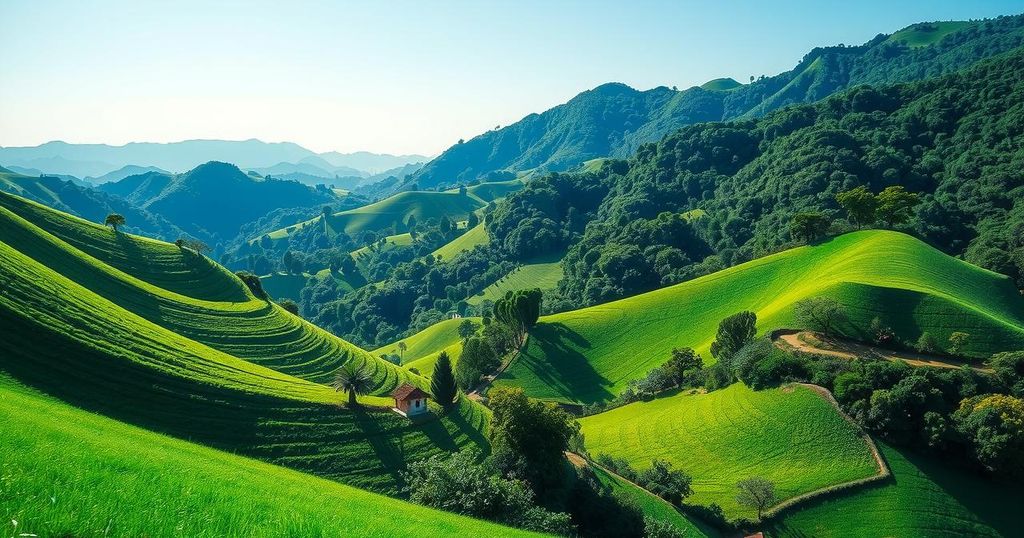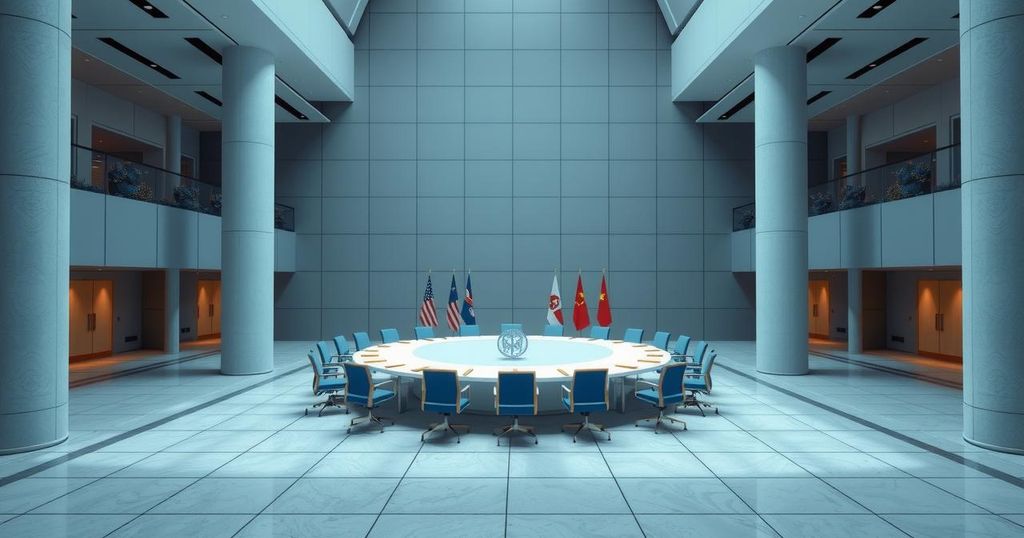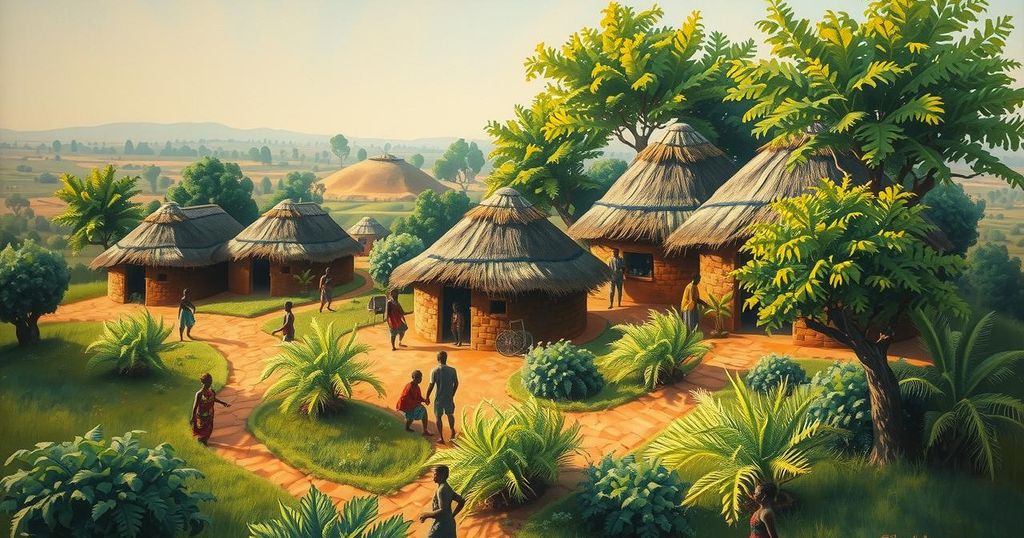Fresh fighting erupted in eastern DR Congo as M23 rebels attacked army positions following a ceasefire appeal. The DRC claims Rwanda supports M23, which denies this. The conflict has resulted in thousands of casualties and ongoing humanitarian issues, while regional leaders seek peace solutions amid fears of escalated conflict.
On Tuesday, renewed clashes erupted in eastern Democratic Republic of Congo (DRC), occurring just three days after a ceasefire appeal by African leaders. The M23 rebel group launched attacks against Congolese army positions in South Kivu province at dawn, as reported by local and security sources. The DRC government has classified M23 as a terrorist organization, while the UN and the United States recognize it as an armed rebel group. Tensions have heightened as the DRC alleges that Rwanda is supporting these rebels, a charge that Rwanda refutes.
This resurgence of violence follows a call from east and southern African leaders for an immediate, unconditional ceasefire plan by Thursday. The ongoing conflict has resulted in thousands of casualties and significant displacement among civilians. The M23 has rapidly captured territories in mineral-rich eastern DRC since resuming hostilities in late 2021, taking control of Goma, the capital of North Kivu province, last month.
Recent clashes occurred near Ihusi, approximately 70 kilometers from Bukavu, with reports of heavy weapons being used. The Congolese army relies on Kavumu airport for troop reinforcements, located nearby, heightening concerns in Bukavu, where residents have fled and schools have closed in anticipation of M23 attacks. The capture of Bukavu would enable the M23 and Rwandan forces to control Lake Kivu entirely.
Currently, nearly 300 Congolese soldiers face military court proceedings for various charges, including serious crimes. The M23’s manifesto includes expelling President Felix Tshisekedi, and they have been attempting to disrupt the DRC army’s supply routes into Bukavu. However, Burundian soldiers stationed to support the Congolese army managed to halt their advance, with around 10,000 Burundian troops deployed in the region.
In Goma, the M23 has initiated its own governance and recruitment efforts, establishing a new police force amidst worsening humanitarian conditions. Residents lack access to clean water and are resorting to using Lake Kivu for drinking water, where bodies have been found following the conflict. The UN’s humanitarian agency reports increasing cholera cases due to the inadequate living conditions, especially among the displaced.
As the situation intensifies, an African Union meeting in Addis Ababa this Friday is set to address the crisis. However, diplomatic resolutions to the conflict, which has endured for over three years, have proven fruitless. The DRC has called for targeted sanctions against Rwanda, claiming its interests in the DRC’s rich natural resources as a driving factor in the turmoil. Rwanda maintains that its involvement is to eliminate threats posed by armed groups.
In another tragic development, a militia attack in northeastern Ituri province resulted in the deaths of 51 individuals, predominantly displaced persons. This violence by members of the Cooperative for the Development of Congo (CODECO), which transformed from a peaceful agricultural group into an armed faction, reflects the ongoing chaos faced by communities in the DRC. Numerous conflicts have burdened the nation for over thirty years, further complicating the humanitarian landscape.
In summary, the situation in eastern Democratic Republic of Congo remains dire, with recent fighting highlighting the inadequacies in conflict resolution and humanitarian response. Accusations against Rwanda about supporting rebel groups exacerbate tensions, while the DRC’s internal struggles continue with the rise of militias. The international community’s calls for peace have so far been unsuccessful as violence persists, posing significant risks for regional stability.
Original Source: www.voanews.com




